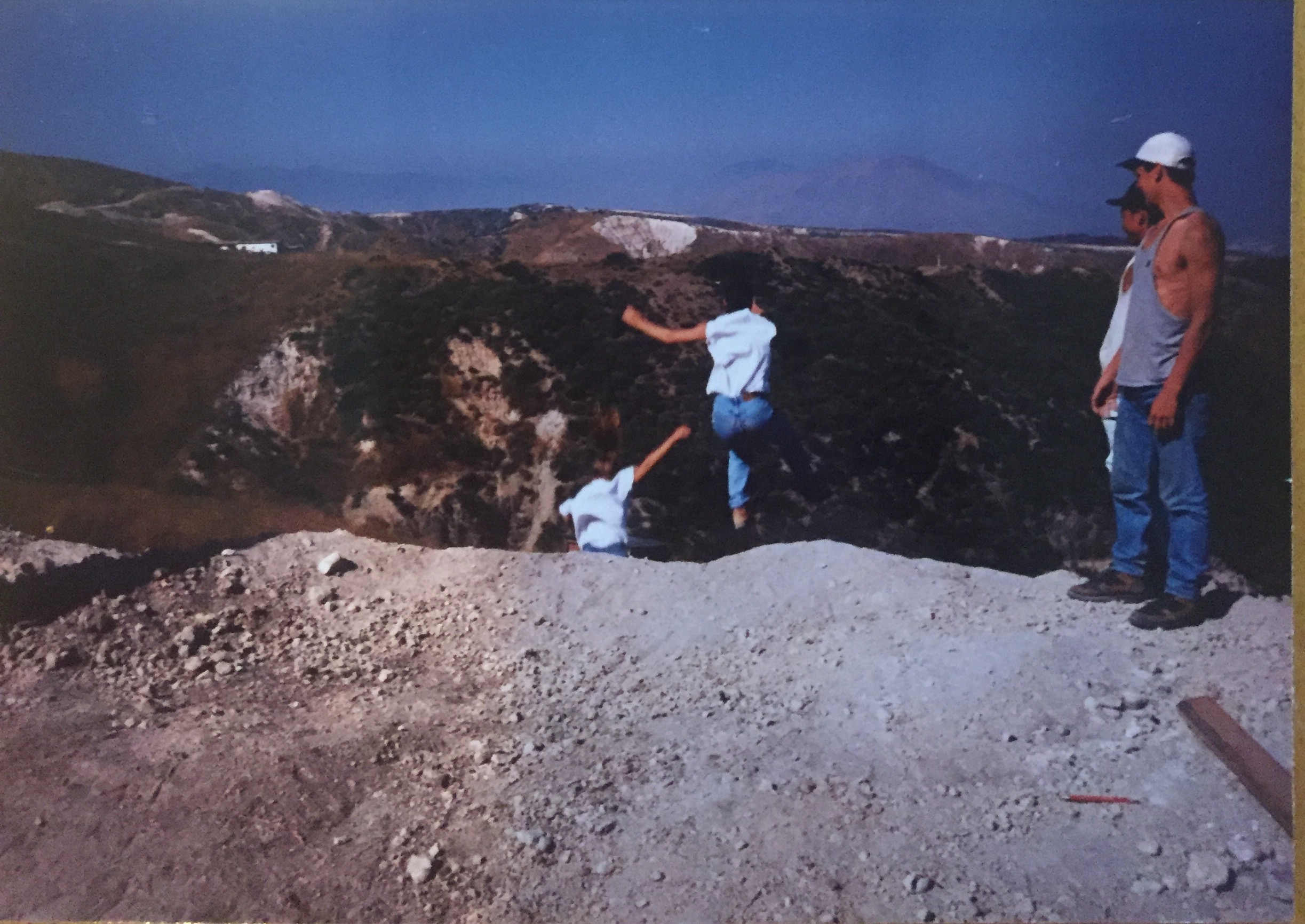Shrouded In Myth
Callie Feyen
 “Stick to the daily learning targets. Do not get off track.” This is one of my administrators, the one that meets with me once a week to go over my lesson plans. Daily Learning Targets are like Bible Memory Work: we are to write these words on our hearts and minds. Do not stray from these words. And it’s not that I stray, but if I were to claim a characteristic of my teaching it’s that when I begin to study and discuss a story, I tend to walk my students down a path that we didn’t know we were going to walk down. Mayella Ewell’s geraniums, for example. The grace in Mercutio. Voldemort’s broken heart. All of these are bulls’ eyes; I just didn’t know I was shooting in their direction at the time.
“Stick to the daily learning targets. Do not get off track.” This is one of my administrators, the one that meets with me once a week to go over my lesson plans. Daily Learning Targets are like Bible Memory Work: we are to write these words on our hearts and minds. Do not stray from these words. And it’s not that I stray, but if I were to claim a characteristic of my teaching it’s that when I begin to study and discuss a story, I tend to walk my students down a path that we didn’t know we were going to walk down. Mayella Ewell’s geraniums, for example. The grace in Mercutio. Voldemort’s broken heart. All of these are bulls’ eyes; I just didn’t know I was shooting in their direction at the time.
Today, my “DLT” is to get my sixth graders to cite evidence from the text we are reading when answering questions I give them. We are reading a short essay titled “Shrouded in Myth.” It’s a piece to introduce the students to mythology because we are going to read one of the Percy Jackson books. On their copy of the essay, I have my students write the definitions down for “cite,” “evidence,” and “shrouded.” Shrouded is my favorite: to be cloaked or covered in mystery. Shrouded is how I feel standing here in Detroit. Shrouded is how I feel walking around Ann Arbor. The cloak is heavy; the cover thick.
“Why was Zeus so drawn to Danae? How did Zeus get to her?” My students are supposed to find this answer in the essay. “All you have to do is highlight the words in the text that answer the question,” I tell them. They pop off their highlighter caps, happy to use something besides a pencil.
“She was stunning!” one exclaims brushing the text with her highlighter. “He turned himself into gold rain? What?” another one says.
“Yeah! And then she gets pregnant!”
“That’s stupid. Everybody knows you can’t get pregnant when it rains.”
“It was gold rain, though.”
I fight everything I have within me that wants to say, “So ladies, when it rains gold, stay inside.”
“So,” one student begins, leaning back in his chair, “Zeus gets Danae pregnant, and then what?”
“Don’t sit like that,” I say. Safety first. Then, “what do you mean?”
“I mean, where’s Zeus in the rest of this story?”
Sure enough, he isn’t mentioned in the rest of the six-paragraph essay we are annotating. He gets Danae pregnant and then the next thing we know Perseus is slaying Medusa.
“Ain’t that just like a baby daddy?” one student says, and the entire class hoots and mmmm hmmmms.
“Always leaving,” another one mumbles.
On page one of The Lightning Thief, the Percy Jackson book we will begin tomorrow, Percy gives a warning: “If you recognize yourself in these pages—if you feel something stirring inside—stop reading immediately.”
I wonder if this will become a Daily Learning Target: “I can recognize myself in a story.” “I feel something stirring inside when I read.” Probably not. You can’t measure this. Keep the mystery veiled. Walk in the golden rain while your stomach stirs and churns with charades you’ll never understand.
 Four of the five years I spent selling myself to creative writing programs, I used this gem in my personal statement:
Four of the five years I spent selling myself to creative writing programs, I used this gem in my personal statement:  The sun is snuggled still sleeping behind the mountains. He pulls their snowy peaks over his head and indulges in another hour of sleep. Not me, though. I’m awake. I’m out in public. I am caffeinated and somewhat functional. I am not necessarily in a bad mood. It's just a morning one. I am working the opening shift at the cafe. The sky is still dark.
The sun is snuggled still sleeping behind the mountains. He pulls their snowy peaks over his head and indulges in another hour of sleep. Not me, though. I’m awake. I’m out in public. I am caffeinated and somewhat functional. I am not necessarily in a bad mood. It's just a morning one. I am working the opening shift at the cafe. The sky is still dark.
 Read
Read 
 The wren is a big song packed into a tiny brown dart of a body with an inquisitive personality. Looking, it hops and tilts its head in that stop-action way. And it instinctively sings what is beautiful within their prodigious range of sound. One interrupted a rest between notes in a bar of music I was playing. I got up immediately, forgetting my music, and moved to the window hoping for a glimpse.
The wren is a big song packed into a tiny brown dart of a body with an inquisitive personality. Looking, it hops and tilts its head in that stop-action way. And it instinctively sings what is beautiful within their prodigious range of sound. One interrupted a rest between notes in a bar of music I was playing. I got up immediately, forgetting my music, and moved to the window hoping for a glimpse. Since my first timid slurp, rife with notes of Palmolive and expired milk, I have distrusted sour beer and all its enthusiasts. Each one has been served by a smirking bartender who addresses my splutter with a smug, “Yeah, it’s not for…everybody.”
Since my first timid slurp, rife with notes of Palmolive and expired milk, I have distrusted sour beer and all its enthusiasts. Each one has been served by a smirking bartender who addresses my splutter with a smug, “Yeah, it’s not for…everybody.” 
 On the first day of 7th grade my history teacher asked us to write down a nickname she should use for us in class. Did she mean we could choose a nickname we wanted to be called by? An Aaron by any other name? I had felt so penned in by name at 12. It had already been egregiously mispronounced (“erin”) and misspelled (I possess a litany of incorrect name tags). Back then I didn’t know of any really admirable Aaron’s either —
On the first day of 7th grade my history teacher asked us to write down a nickname she should use for us in class. Did she mean we could choose a nickname we wanted to be called by? An Aaron by any other name? I had felt so penned in by name at 12. It had already been egregiously mispronounced (“erin”) and misspelled (I possess a litany of incorrect name tags). Back then I didn’t know of any really admirable Aaron’s either —  A friend of mine who wants to put baseboards in his house was told what it takes to do good baseboard work: a thousand cuts. I can’t tell if that’s a type of hope, as even the best get to be the best through tedium not talent, or a type of torture, viz., death by a thousand maddening cuts.
A friend of mine who wants to put baseboards in his house was told what it takes to do good baseboard work: a thousand cuts. I can’t tell if that’s a type of hope, as even the best get to be the best through tedium not talent, or a type of torture, viz., death by a thousand maddening cuts.  These bodies, how they speak. How they signify, the mouth still. How their poise and rhythm scores a city sidewalk, their movements trace meanings on the moist air that separates us.
These bodies, how they speak. How they signify, the mouth still. How their poise and rhythm scores a city sidewalk, their movements trace meanings on the moist air that separates us. What they don't tell you is that getting older comes on you like a pie in the face: suddenly, unjustly, and funny to onlookers. And not funny to you. It comes like a slow-motion pratfall. It feels like a prank show genius has studied your increasing night-time eliminations and booby-trapped the route with a banana peel, a toy truck and a hoe in perfect succession. Aging comes blindly, symptom by symptom, each with its own joke.
What they don't tell you is that getting older comes on you like a pie in the face: suddenly, unjustly, and funny to onlookers. And not funny to you. It comes like a slow-motion pratfall. It feels like a prank show genius has studied your increasing night-time eliminations and booby-trapped the route with a banana peel, a toy truck and a hoe in perfect succession. Aging comes blindly, symptom by symptom, each with its own joke.
 Kiss me, and you will see how important I am.
—
Kiss me, and you will see how important I am.
—
 Read
Read  I was 27 years old when my daughter, my only child, Ellie, was born. It took years to conceive her, and then suddenly, on a pre-dawn Saturday morning, my water broke like the rainstorm that always arrives on days a meteorologist has confidently assured you, “Enjoy, folks. Today will be a sunny 70 degrees.” There were no signs Ellie would be a full three weeks early.
I was 27 years old when my daughter, my only child, Ellie, was born. It took years to conceive her, and then suddenly, on a pre-dawn Saturday morning, my water broke like the rainstorm that always arrives on days a meteorologist has confidently assured you, “Enjoy, folks. Today will be a sunny 70 degrees.” There were no signs Ellie would be a full three weeks early. I found the skin of a snake in my backyard last summer while I was crawling on my hands and knees pulling weeds. Sandwiched between stalks of crocosmia was an entire body case, white and transparent, stamped with tiny squares, like thin patterned tissue paper. Resting there whole, without the snake itself, I thought of the disciples finding Jesus’ grave clothes in the empty tomb. Where had he gone?
I found the skin of a snake in my backyard last summer while I was crawling on my hands and knees pulling weeds. Sandwiched between stalks of crocosmia was an entire body case, white and transparent, stamped with tiny squares, like thin patterned tissue paper. Resting there whole, without the snake itself, I thought of the disciples finding Jesus’ grave clothes in the empty tomb. Where had he gone?